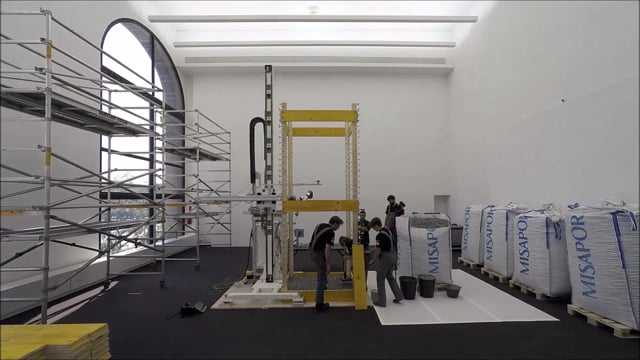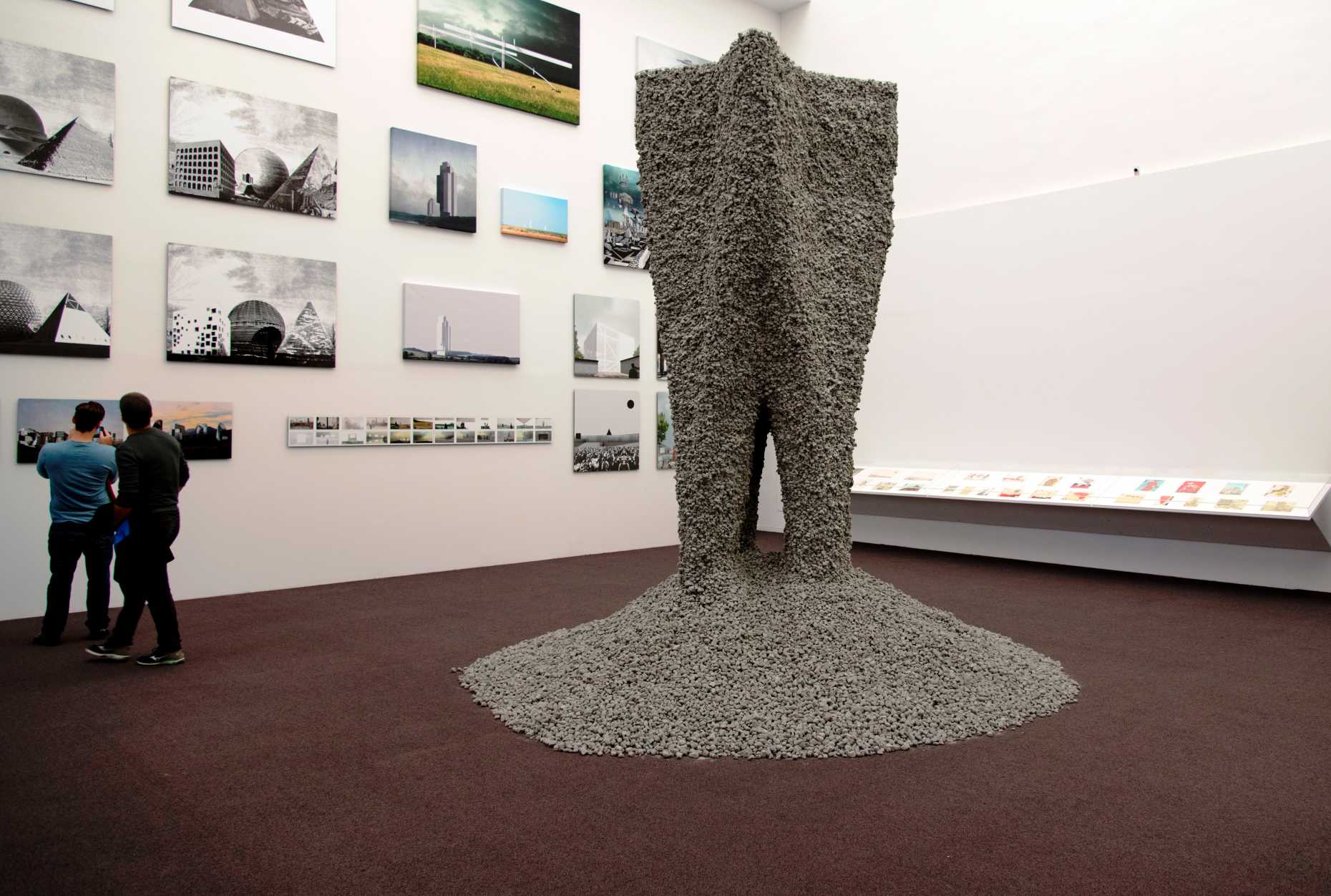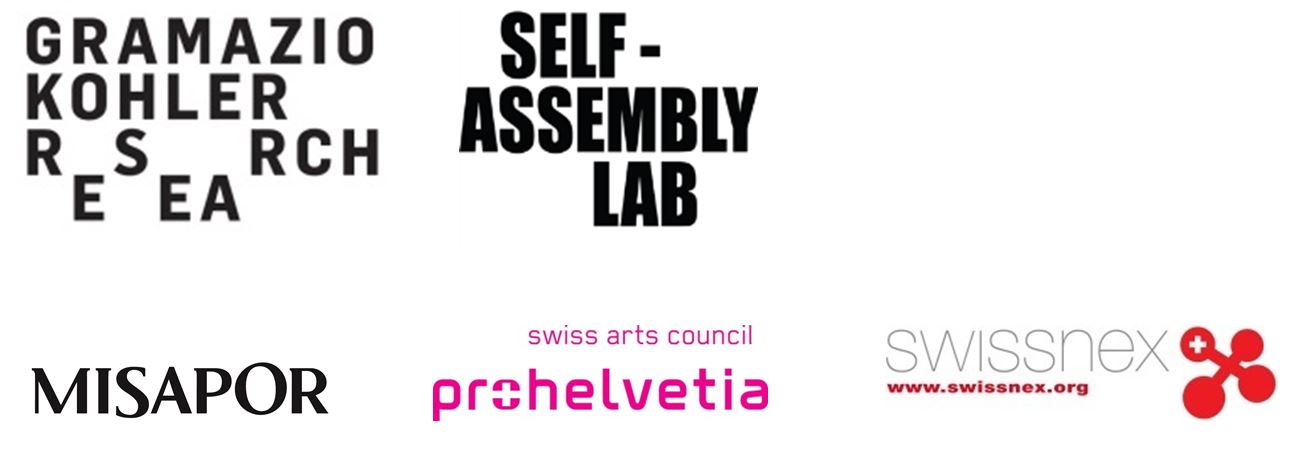Rock Print Press Kit
Images and videos

Project description

Download Download the full-length description of the Rock Print project (PDF, 256 KB)

Download Download the full-length description of the Rock Print project (PDF, 256 KB)
Rock Print in the News
14.10.2015 - externe Seite 3 Novices Australia
14.10.2015 - externe Seite Design Indaba
13.10.2015 - externe Seite Dezeen
13.10.2015 - externe Seite DesignApplause
13.10.2015 - externe Seite Architizer
13.10.2015 - externe Seite Decor10
12.10.2015 - externe Seite ALL3DP
12.10.2015 - externe Seite 3DR
11.10.2015 - externe Seite Monolithos
11.10.2015 - externe Seite 3DPrint.com
10.10.2015 - externe Seite swissnex Boston
10.10.2015 - externe Seite Easy Branches (EU)
09.10.2015 - externe Seite Architectstasy
09.10.2015 - externe Seite Epazium (in German)
08.10.2015 - externe Seite Arch Daily
08.10.2015 - externe Seite Topix
08.10.2015 - externe Seite Archinect
08.10.2015 - externe Seite The Creators Project
08.10.2015 - externe Seite Bangalore Mirror
07.10.2015 - externe Seite Robohub
07.10.2015 - externe Seite World-Architects
07.10.2015 - externe Seite Greater Zurich Area (also in German)
07.10.2015 - externe Seite 3D Printing Magazine
07.10.2015 - externe Seite Blaublatt (in German)
06.10.2015 - externe Seite Curbed
06.10.2015 - externe Seite Fact co-Design
05.10.2015 - externe Seite MyScience
05.10.2015 - externe Seite The Guardian
05.10.2015 - externe Seite Architect - Journal of the American Institute of Architects
05.10.2015 - ETH Zurich News
04.10.2015 - externe Seite Decorcus
04.10.2015 - externe Seite Examiner
04.10.2015 - externe Seite Super Architects
03.10.2015 - externe Seite Field Condition
03.10.2015 - externe Seite Decor Fox
02.10.2015 - externe Seite Condé Nast Traveler
02.10.2015 - externe Seite Dezeen
02.10.2015 - externe Seite Design4Interior
02.10.2105 - externe Seite Steel Mag
02.10.2015 - externe Seite Instagravity
02.10.2015 - externe Seite DesignApplause
02.10.2015 - externe Seite Design Boom
02.10.2015 - externe Seite Chicago Reader
02.10.2015 - externe Seite swissnex Boston
02.10.2015 - externe Seite Instidy
01.10.2015 - externe Seite A/N Blog
01.10.2105 - externe Seite Daily Tonic
14.10.2015 - externe Seite 3 Novices Australia
14.10.2015 - externe Seite Design Indaba
13.10.2015 - externe Seite Dezeen
13.10.2015 - externe Seite DesignApplause
13.10.2015 - externe Seite Architizer
13.10.2015 - externe Seite Decor10
12.10.2015 - externe Seite ALL3DP
12.10.2015 - externe Seite 3DR
11.10.2015 - externe Seite Monolithos
11.10.2015 - externe Seite 3DPrint.com
10.10.2015 - externe Seite swissnex Boston
10.10.2015 - externe Seite Easy Branches (EU)
09.10.2015 - externe Seite Architectstasy
09.10.2015 - externe Seite Epazium (in German)
08.10.2015 - externe Seite Arch Daily
08.10.2015 - externe Seite Topix
08.10.2015 - externe Seite Archinect
08.10.2015 - externe Seite The Creators Project
08.10.2015 - externe Seite Bangalore Mirror
07.10.2015 - externe Seite Robohub
07.10.2015 - externe Seite World-Architects
07.10.2015 - externe Seite Greater Zurich Area (also in German)
07.10.2015 - externe Seite 3D Printing Magazine
07.10.2015 - externe Seite Blaublatt (in German)
06.10.2015 - externe Seite Curbed
06.10.2015 - externe Seite Fact co-Design
05.10.2015 - externe Seite MyScience
05.10.2015 - externe Seite The Guardian
05.10.2015 - externe Seite Architect - Journal of the American Institute of Architects
05.10.2015 - ETH Zurich News
04.10.2015 - externe Seite Decorcus
04.10.2015 - externe Seite Examiner
04.10.2015 - externe Seite Super Architects
03.10.2015 - externe Seite Field Condition
03.10.2015 - externe Seite Decor Fox
02.10.2015 - externe Seite Condé Nast Traveler
02.10.2015 - externe Seite Dezeen
02.10.2015 - externe Seite Design4Interior
02.10.2105 - externe Seite Steel Mag
02.10.2015 - externe Seite Instagravity
02.10.2015 - externe Seite DesignApplause
02.10.2015 - externe Seite Design Boom
02.10.2015 - externe Seite Chicago Reader
02.10.2015 - externe Seite swissnex Boston
02.10.2015 - externe Seite Instidy
01.10.2015 - externe Seite A/N Blog
01.10.2105 - externe Seite Daily Tonic
Specifications

- Printing box volume: 7.2m3
- Rock Print: Volume, 3.5m3; Weight, 970kg; Dimensions, 1.2m x 1.5m x 4.0m
- Aggregate: 2000kg externe Seite Misapor
- String: 9.1km BS; recycled string 2.5mm
- Fabrication time: 45 hours

- Printing box volume: 7.2m3
- Rock Print: Volume, 3.5m3; Weight, 970kg; Dimensions, 1.2m x 1.5m x 4.0m
- Aggregate: 2000kg externe Seite Misapor
- String: 9.1km BS; recycled string 2.5mm
- Fabrication time: 45 hours
Biographies

Gramazio Kohler Research, ETH Zurich
Fabio Gramazio and Matthias Kohler are architects with multi-disciplinary interests ranging from computational design and robotic fabrication to material innovation. In 2000, they founded the architecture practice Gramazio Kohler Architects, which has realised numerous award-winning projects integrating novel architectural designs within a contemporary building culture. Current projects include the design of the NEST research platform, a future living and working laboratory for sustainable building construction. Opening also the world’s first architectural robotic laboratory at ETH Zurich, their research has been formative in the field of digital architecture, setting precedence and de facto creating a new research field merging advanced architectural design and additive robotic fabrication. This ranges from 1:1 installations to the design of robotically fabricated high-rise buildings, and has been published in a large number of publications, further contributing to numerous exhibitions, such Structural Oscillations at the 2008 Venice Architecture Biennale, Pike Loop at the Storefront for Art and Architecture in New York in 2009, and Flight Assembled Architecture at the FRAC Centre, Orléans, France, in 2011. Their recent research is outlined and theoretically framed in the book The Robotic Touch: How Robots Change Architecture (Park Books, 2014). Together with leading researchers in architecture, material sciences, computation and robotics, they have just launched the first architectural National Centre of Competence in Research on Digital Fabrication.

externe Seite Self-Assembly Lab, MIT
Skylar Tibbits is currently a Research Scientist in MIT’s Department of Architecture, teaching graduate and undergraduate design studios and co-teaching How to Make (Almost) Anything, a seminar at MIT’s Media Lab. Skylar was recently awarded a 2013 Architectural League Prize, The Next Idea Award at Ars Electronica 2013, the Visionary Innovation Award at the Manufacturing Leadership Summit, a 2012 TED Senior Fellowship and was named a Revolutionary Mind in SEED Magazine’s 2008 Design Issue.
Previously, he has worked at a number of renowned design offices including: Zaha Hadid Architects, Asymptote Architecture and Point b Design. He has designed and built large-scale installations at galleries around the world, has been published extensively in outlets such as the New York Times, Wired, Nature, Fast Company, various peer-reviewed journals and books. Skylar has a Professional Degree in Architecture and minor in experimental computation from Philadelphia University. Continuing his education at MIT, he received a Masters of Science in Design Computation and a Masters of Science in Computer Science under the guidance of Patrick Winston, Terry Knight, Erik Demaine and Neil Gershenfeld. As director of the MIT Self-Assembly Lab Skylar focuses on self-assembly and programmable material technologies for novel manufacturing, products and construction processes. Started in 2007, Skylar Tibbits is also the founder and principal of a multidisciplinary design practice, SJET LLC.

Gramazio Kohler Research, ETH Zurich
Fabio Gramazio and Matthias Kohler are architects with multi-disciplinary interests ranging from computational design and robotic fabrication to material innovation. In 2000, they founded the architecture practice Gramazio Kohler Architects, which has realised numerous award-winning projects integrating novel architectural designs within a contemporary building culture. Current projects include the design of the NEST research platform, a future living and working laboratory for sustainable building construction. Opening also the world’s first architectural robotic laboratory at ETH Zurich, their research has been formative in the field of digital architecture, setting precedence and de facto creating a new research field merging advanced architectural design and additive robotic fabrication. This ranges from 1:1 installations to the design of robotically fabricated high-rise buildings, and has been published in a large number of publications, further contributing to numerous exhibitions, such Structural Oscillations at the 2008 Venice Architecture Biennale, Pike Loop at the Storefront for Art and Architecture in New York in 2009, and Flight Assembled Architecture at the FRAC Centre, Orléans, France, in 2011. Their recent research is outlined and theoretically framed in the book The Robotic Touch: How Robots Change Architecture (Park Books, 2014). Together with leading researchers in architecture, material sciences, computation and robotics, they have just launched the first architectural National Centre of Competence in Research on Digital Fabrication.

externe Seite Self-Assembly Lab, MIT
Skylar Tibbits is currently a Research Scientist in MIT’s Department of Architecture, teaching graduate and undergraduate design studios and co-teaching How to Make (Almost) Anything, a seminar at MIT’s Media Lab. Skylar was recently awarded a 2013 Architectural League Prize, The Next Idea Award at Ars Electronica 2013, the Visionary Innovation Award at the Manufacturing Leadership Summit, a 2012 TED Senior Fellowship and was named a Revolutionary Mind in SEED Magazine’s 2008 Design Issue.
Previously, he has worked at a number of renowned design offices including: Zaha Hadid Architects, Asymptote Architecture and Point b Design. He has designed and built large-scale installations at galleries around the world, has been published extensively in outlets such as the New York Times, Wired, Nature, Fast Company, various peer-reviewed journals and books. Skylar has a Professional Degree in Architecture and minor in experimental computation from Philadelphia University. Continuing his education at MIT, he received a Masters of Science in Design Computation and a Masters of Science in Computer Science under the guidance of Patrick Winston, Terry Knight, Erik Demaine and Neil Gershenfeld. As director of the MIT Self-Assembly Lab Skylar focuses on self-assembly and programmable material technologies for novel manufacturing, products and construction processes. Started in 2007, Skylar Tibbits is also the founder and principal of a multidisciplinary design practice, SJET LLC.
Media Contacts:
ETH Zurich
Architecture & Digital Fabrication
Dr. Jan Willmann
HIL F 57.1
Stefano-Franscini-Platz 5
8093 Zürich
Switzerland
Tel. +41 44 633 46 11
ETH Zurich
Corporate Communication
Marianne Lucien
HG F 37.4
Rämistrasse 101
8092 Zürich
Switzerland
Tel. +41 44 633 84 75




